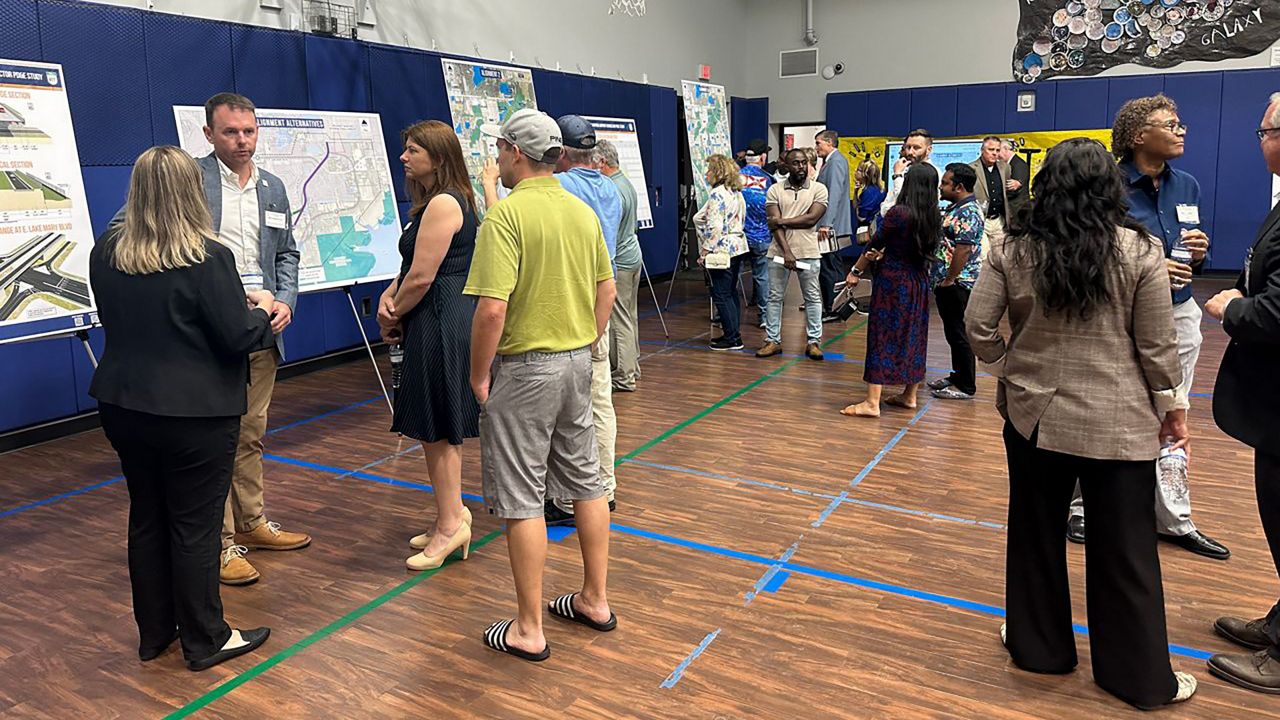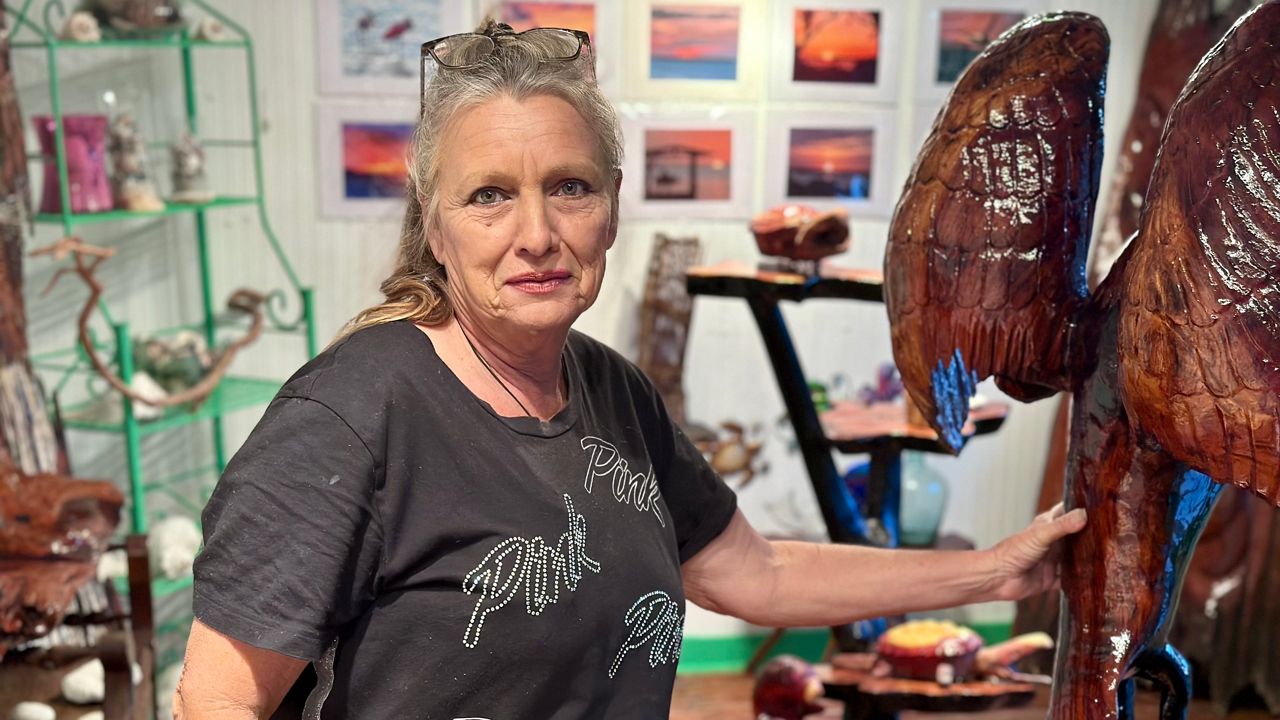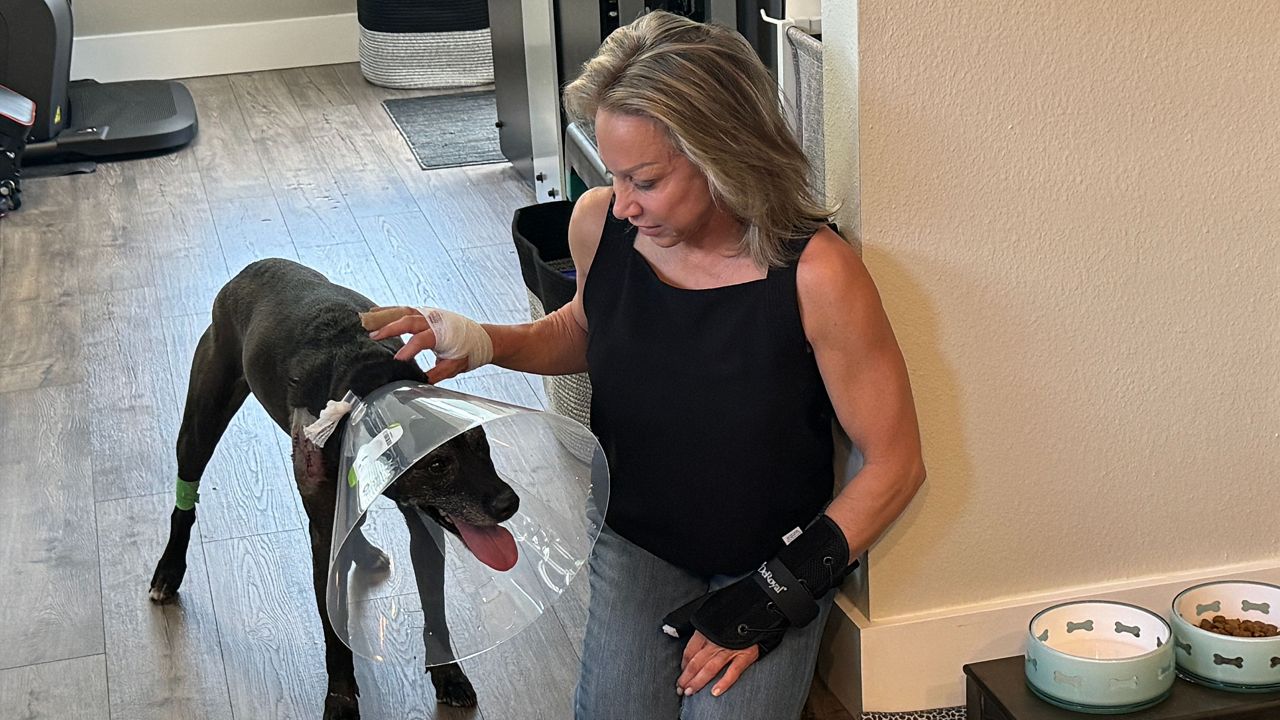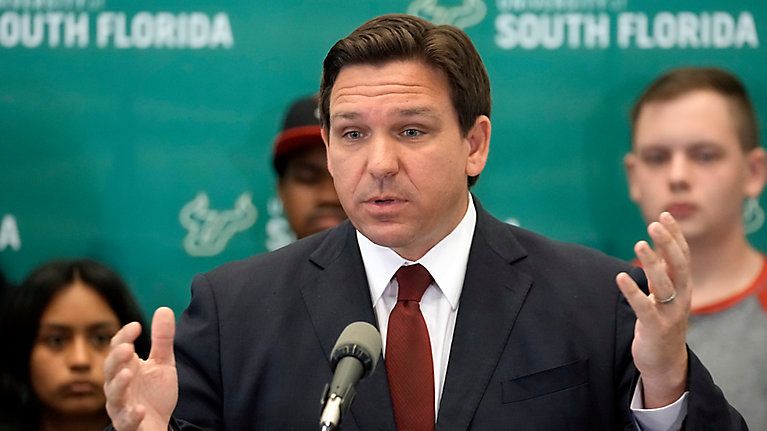ORLANDO, Fla. — The U.S. Department of Agriculture recently notified food banks across the country that it is suspending emergency food assistance funding while the Trump administration assesses that spending.
Second Harvest Food Bank of Central Florida says that means it's suddenly losing the shipment of 28 tractor trailer loads of food — the equivalent of 910,000 meals. This is food Second Harvest distributes to hundreds of smaller service organizations across Orange, Seminole, Osceola and Brevard counties.
“Emergency food pantry programs — they are shelters, they are soup kitchens — places people turn to for help,” said Greg Higgerson, chief development officer for Second Harvest. “And if we can’t turn it around, those places are going to have less to be able to give to their constituents.”
Another nonprofit, United Against Poverty Orlando, is also feeling the effects of the reduction in funding from the federal government. The nonprofit runs its own grocery store where it provides food at a discounted rate. But Executive Director Anjali Vaya said lately it’s been difficult to keep its shelves stocked.
“It’s a really sad state because the individuals and Central Florida families are needing more help, but yet we’re having a shortage of items that are donated,” Vaya said.
“We are now having to purchase these items because you can’t come into the location and not have the ingredients to make a nutritious meal.”
The director of a twice-monthly food drive at Patmos Chapel in Apopka said his group is getting less food shipped to them. Yet he’s seeing more people showing up for that food, so volunteers have to reduce the amount given to each recipient so each of the hundreds of people who show up can be served.
Vaya said United Against Poverty is seeing nearly double the amount of customers into its store than this time last year. And that’s forcing the group to buy even more of what’s not getting donated. And the more the organization has to spend, the more its own future of helping others becomes unclear.
“All the economics of what’s going on, it’s all going to start affecting us as the nonprofit world definitely because it’s a very uncertain time,” Vaya said.
Second Harvest Food Bank said the lost food is worth about $1.6 million, so if the funding for the food shipments isn’t restored, it will have to find a way to make up for that. Second Harvest leaders are hoping corporate partners in the Central Florida area will step in to help.













